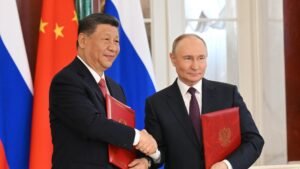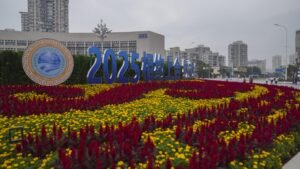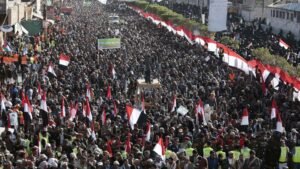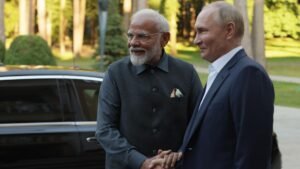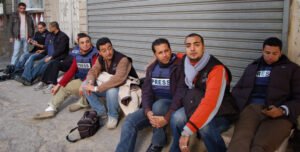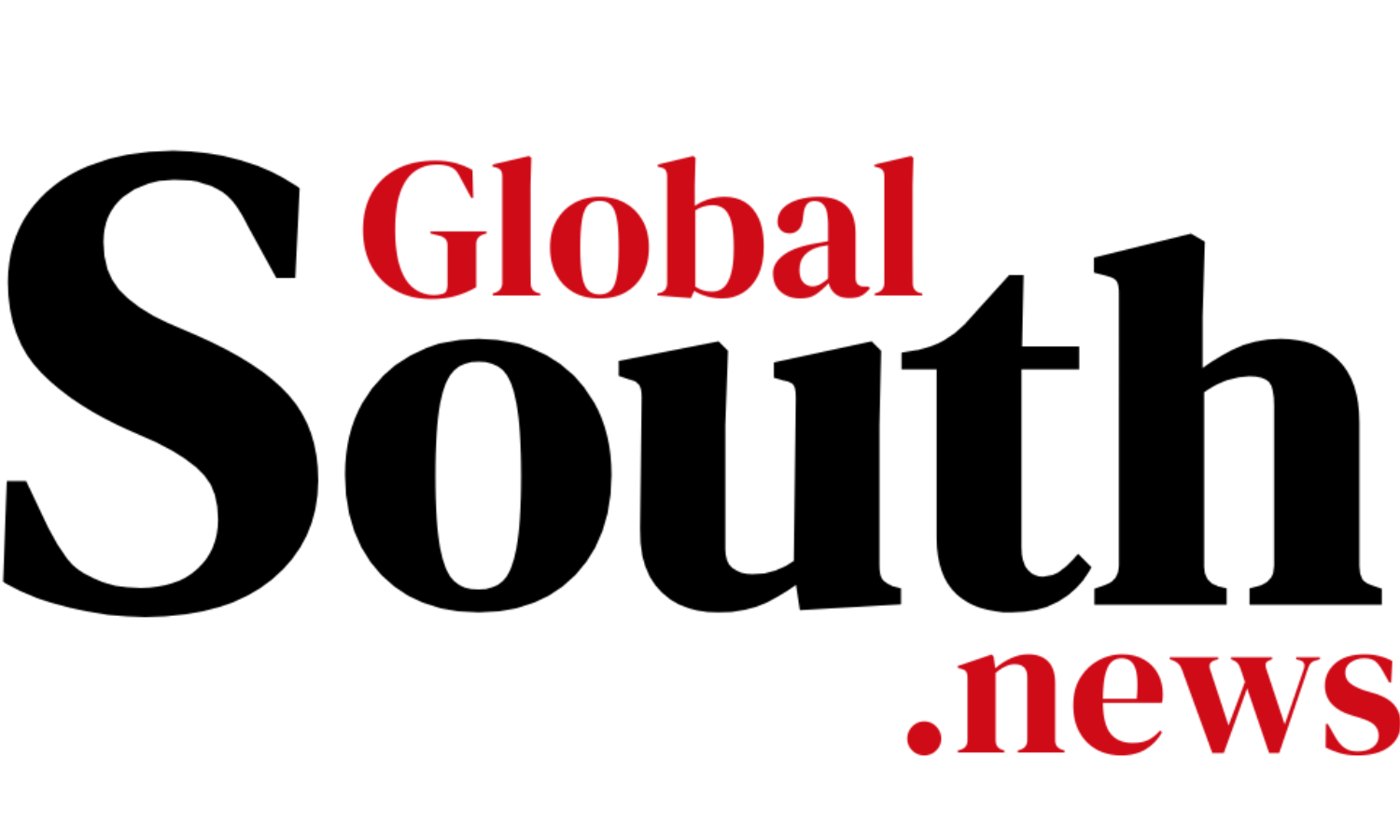
BRICS Popular Council: The Dogs Bark, But the Caravan Moves On!
The “legacy media,” or corporate media, both here and abroad, has been escalating its tone against the Lula government’s foreign policy, considering it very “radical” to the left, anti-Western, and aligned with countries deemed “enemies” of the United States.
The British magazine The Economist, in a report on June 30, 2025, classified President Lula as “inconsistent abroad” and stated that Brazil “appears increasingly hostile to the West” due to its participation in “a BRICS dominated by the agendas of China and Russia.” The report received wide repercussion in our main media outlets, which seemed to approve of the criticism of the Workers’ Party government.
These criticisms from the traditional media and the Brazilian right try to transform a sovereign, independent, “non-aligned” foreign policy into a problem for the government. It’s the old imperialist tactic of poisoning public opinion in countries with prejudices and lies.
However, the dogs bark, the caravan moves on.
While the Traditional Media Presses the Government
While the traditional media presses the government to submit to the whims of a West in frank economic and moral decline, the social movements of Brazil and the BRICS countries have been getting closer to discuss strategies to accelerate and intensify partnerships among the Global South countries.
This Friday, July 4, on the eve of the official meeting of heads of state of the BRICS member countries, the day dawned rainy and cold in Rio de Janeiro, but soon the sun began to shine over Praça Tiradentes, in the heart of the city’s historic center.
At the Carlos Gomes Theater, located nearby, the Special Session of the BRICS Popular Council took place, one of the most interesting parallel events related to the official meeting.
The Russian Opinion
Dr. Victoria Panova, Vice-Rector of HSE (Higher School of Economics) and head of the BRICS Expert Council of the Russian Federation, emphasized that there is a real lack of desire on the part of some powers to establish an equitable and fair dialogue with the BRICS. “The stance of non-subordination is seen as a threat. BRICS is not anti-West. BRICS is just non-Western. But it is in favor of dialogue,” she stated.
Panova highlighted the longevity and resilience of the group, recalling that since 2009, when the first summit was held, there have already been 17 meetings at the highest level, contradicting constant predictions that the bloc would be ephemeral. The Russian specialist explained that the reason for this durability lies in the BRICS culture of recognizing that they are very different, but this does not prevent them from having a constructive dialogue.
For Panova, the BRICS’ differential lies in mutual respect and the absence of hierarchy. “If it’s a hierarchical club like the G7, you subordinate yourself to the strongest country or it doesn’t work. Here [in BRICS] it only works when you respect the limitations and interests of other countries and treat everyone as equals.”
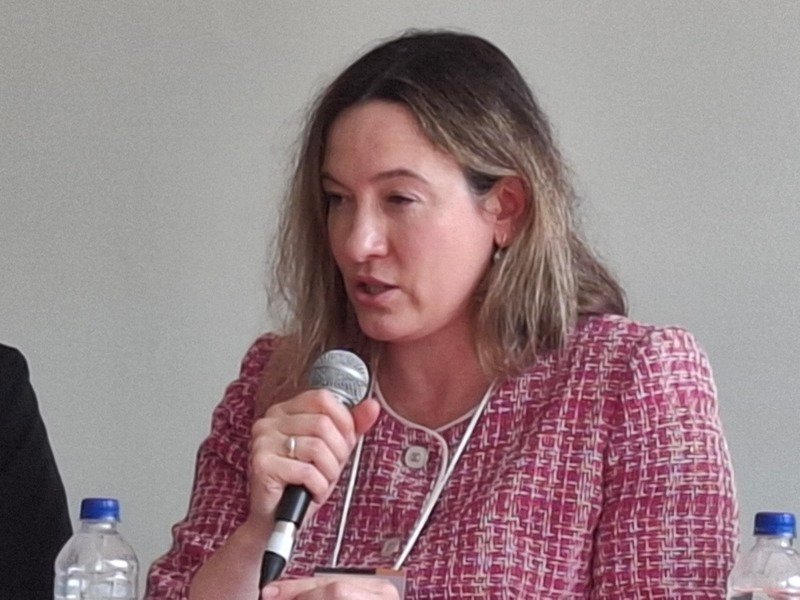
The Meeting Context
The BRICS Popular Council meeting brought together about 200 people at the Carlos Gomes Theater this Friday, July 5, 2025. The event gathered social movements, intellectuals, civil society organizations, and government members from several BRICS countries. This is a recently created initiative with a specific purpose: to conduct a debate about BRICS outside of institutional bureaucratic mechanisms, which often err due to a lack of innovation, originality, and absence of self-criticism.
The opening was attended by Minister Márcio Costa Macêdo, from the General Secretariat of the Presidency, Antonio Cottas de Jesus Freitas, Undersecretary of International Finance of the Ministry of Finance, state deputy Marina do Amaral, Maíra from the MST, Rio de Janeiro councilwoman, and Paulo Nogueira Batista Jr., former president of the BRICS New Development Bank.
Criticisms of Itamaraty
Elias Jabbour, president of the Pereira Passos Institute and author of books on China and socialism, brought a critical perspective on Brazil’s role in BRICS. In his speech, he did not spare criticism of Itamaraty, especially regarding Venezuela. “I felt ashamed, as a Brazilian, of the role Itamaraty played in blocking Venezuela’s entry into BRICS,” he declared. Jabbour also harshly criticized a hostile stance towards China by important Itamaraty authorities, including those responsible for Brazil’s relationship with Asia.
Jabbour argued that BRICS carries fundamental historical responsibilities. The first would be the defense and protection of world peace. “BRICS must be able to coordinate among themselves with the aim of playing a role, in fact, and not only in rhetoric, for the preservation of world peace,” he stated. He considered that the BRICS’ reaction to the US and Israeli attack on Iran was “very timid, very diplomatic.”
The specialist also emphasized the need for BRICS to deliver new forms of development financing and concrete solutions for the internal and external debts of Global South countries. “Today, 3 billion people live with their countries delivering more resources for internal and external debt than for education and health,” he highlighted.
Jabbour made a historical analysis of the world disorder, locating its beginning in 1999 with the attacks on Yugoslavia, passing through the financialization of the world economy, the invasion of Iraq in 2003, the financial crisis of 2007-2009, until reaching the current conflicts. For him, there is “a war of the global north against the global south,” and BRICS needs to be able to defend itself from this onslaught.
“Democratic” West Does Not Want to Democratize Global Governance
Marta Fernandez, from the Policy Center, pointed out a fundamental contradiction in the criticisms directed at BRICS: “they say that democracy is a problem in BRICS, but it is BRICS that calls for the democratization of global governance.”
This observation goes to the heart of one of the main tensions in contemporary international debate. While Western countries often criticize BRICS for alleged internal democratic deficiencies of some of its members, it is precisely BRICS that leads the demands for an effective democratization of global governance institutions. The group has consistently advocated for reforms in the UN Security Council, greater representation in the IMF and World Bank, and the creation of more inclusive international decision-making mechanisms.
Saving Western Humanism
Professor Fabiano Mielniczuk, from the political science department at UFRGS, defined BRICS as “the most important geopolitical, geoeconomic, international policy grouping of the post-Cold War, without a doubt.” For him, it is “one of the most important processes of reordering international orders that we have in the history of international relations.”
Mielniczuk identified four unique aspects of BRICS. First, its suprarregional character: “BRICS are different. Regionally, they are in all regions. And this creates a kind of incentive, stimulus, for countries from these regions to join BRICS.” Second, development differences as an advantage: “These different levels of development that we have are a potential for economic cooperation.”
The third aspect would be the normative agenda based on respect for differences. “Behind BRICS there is a normative agenda based on respect for difference. Based on respect for cultural difference, based on respect for religious difference, based on respect for economic difference,” he explained. The fourth aspect is the non-Western character without being anti-Western.
Mielniczuk made a profound reflection inspired by Frantz Fanon: “We don’t have to abandon humanism, we have to save humanism from the Europeans.” This phrase synthesizes a fundamental perspective: it is not about rejecting humanist values, but about saving them from hypocrisy and double standards.
The professor also warned about two important cautions: not reproducing hierarchical structures within the group and maintaining informality as protection for weaker countries, allowing advances without suffering pressure from the global north.
Amandla Awethu: South African Representative Advocates Trade in Local Currencies
Raymond Matlala, founder and president of the South African BRICS Youth Association (SABYA), brought a practical perspective on the challenges of BRICS. He highlighted concrete issues such as currency exchange without using SWIFT and trade in local currencies. “They can trade in local currencies. But now around people, because it is the people who will visit Russia who will be affected by the cost of exchanges,” he observed.
Matlala emphasized the importance of a council that meets with leaders at least once a year, showing concern for popular participation in BRICS decisions. At the end of his intervention, he raised his fist and shouted the historic anti-apartheid struggle slogan: “Amandla Awethu!” (Power to the people!). Under the guidance of Marco Fernandes, who moderated the debate, the entire audience stood up and shouted the same slogan with him, echoing through the walls of the Carlos Gomes Theater.
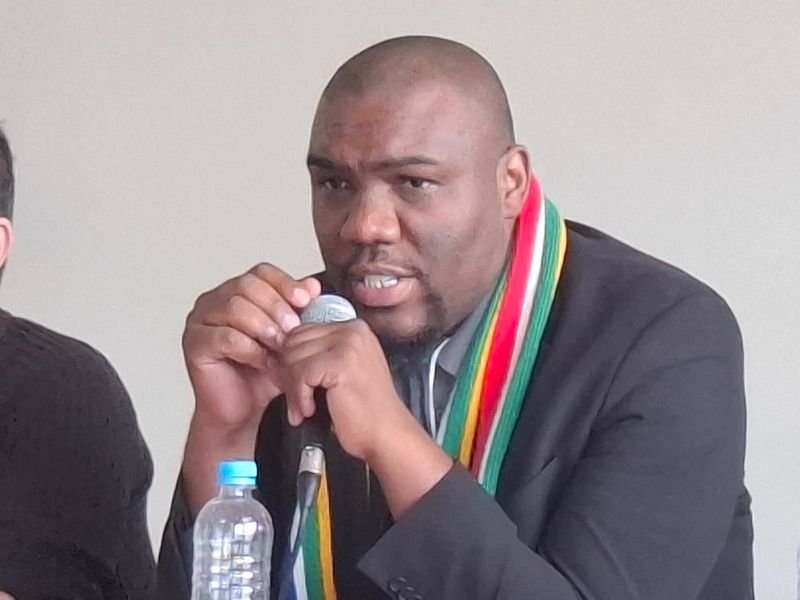
Considerations
Elias Jabbour’s criticisms of Brazil’s foreign policy are valid, although it is difficult to see the possibility of Itamaraty radicalizing to the left in favor of BRICS. The current Brazilian foreign policy is already seen as radical by the right and by the major media outlets, which oppose the Lula government for its resistance to anti-Russia, anti-China, and anti-BRICS discourse.
The conservative pressure intensified after Itamaraty’s note harshly condemning the attacks by Israel and the United States on Iran in June 2025.
The opposition criticized the Brazilian stance, with Jair Bolsonaro publicly supporting the American attacks on Iran in direct contrast to the Lula government’s position.
Gazeta do Povo, on June 23, 2025, published an article titled “Lula’s historical support for Iran weakens Brazil’s foreign policy,” accusing the foreign policy of “protecting Iran and attacking Israel.”
It is worth remembering that it is not just a minority right-wing sector or the media that makes these criticisms. It comes from practically half the country, and possibly most of Congress tends to agree with them rather than disagree.
These criticisms reveal how conservative sectors try to paint any sovereign position of Brazil as a kind of anti-Western radicalization, often with support not only from the more Bolsonaro-aligned media (like Gazeta do Povo) but also from its mainstream sectors.
President Lula walks a tightrope, forced to play a subtle game between maintaining good relations with Europe and the United States – important for the Brazilian economy – and defending sovereign positions and supporting the construction of a new geopolitical power pole in the Global South, with Brazil and BRICS as protagonists. The Lula government does not have the centralized political control of Russia or China, operating in a much more delicate domestic environment.
But it is essential to push the government to produce the intelligence necessary for the transformation and improvement in the correlation of forces.
It is not just about “pushing” the government to the left, not least because much of the Brazilian left itself is still largely geopolitically illiterate and often emulates the same prejudiced behavior of much of the North American and European left against the Global South.
The challenge is also, therefore, to make the left itself become more open, lucid, consistent, and effective, and understand the geopolitical conjuncture as a great opportunity to circumvent domestic polarization and implement development projects supported by the broad popular masses.
Listen:
Watch the excerpt:




